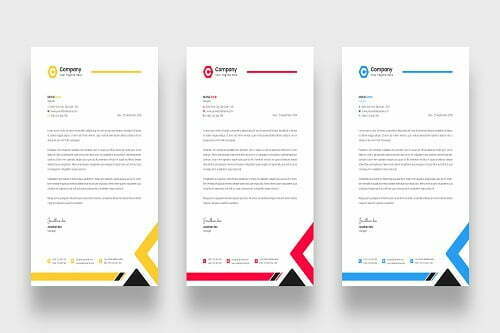Table of Contents
It’s very common for people to leave and join a new organization during the span of their careers. But what most of us don’t know is that there’s a lot of documentation involved when you switch from one company to another. An experience letter is one such official paper you must know about. Read on to know what it is and learn how to nail it with our 5 insider tips!
What is an experience letter?
An experience letter is an official document that states how much time you have spent in a company. It also talks about the skills, knowledge, and experience that you have acquired during your employment.
The letter is provided by every business organization to a designated employee on request or when they leave the organization.
An experience letter must include the following information-
- Name of the candidate
- Job role
- The duration they worked for, their salary, and the skills they have acquired
- A sign from the manager of the firm
Moreover, this letter is written by a manager on the company’s letterhead and can be used for a variety of purposes. Like sending it to a prospective employer who wants to see your job history.
Note: Make sure you request your employer to include any worthy accomplishments or skills to this letter, as it will add value to your resume.
Since this letter holds legal importance, your business organization must issue it to confirm the tenure of your employment, especially if you are leaving. Additionally, you will need a letter of experience if you want to prove your previous work employment and the skills you have acquired at your previous organization. This is why the HR department takes great care in creating it.
Why is it important?

As mentioned earlier, the experience letter is very important, as it acknowledges your past experience and skills. It is proof that you have the right skill set and the experience that you need to do your new job well. Having this letter will give your profile an added advantage, seeing that it is coming from someone who has seen you work before.
It also serves as a formal document that a business employed you for a certain role and for a particular duration. Additionally, if you’re experienced and don’t have this letter on hand, you have a higher chance of getting a salary for an entry-level position.
Benefits of an experience letter
We have already established that employees can benefit greatly from an experience letter. But to drive this point home, we have listed a few of its benefits-
- It conveys your job history and showcases your work ethic.
- The letter is proof that you have done quality work in the past.
- Here, your superiors highlight your skills and experience, unlike in your resume, where you have to highlight your profile.
- If you have worked for a long time at a particular organization, it will highlight your credibility.
- It adds to your resume as it will talk about your roles and responsibilities and how your work benefited the organization.
- You are likely to get a higher pay with an this letter in your bucket.
- Additionally, you will get a higher position if you have helped the company grow and that’s highlighted in the letter.
Broadly speaking, an experience letter highlights your tremendous growth and opens more opportunities for you, helping you progress further ahead in your career.
Contents of the letter
The contents of an experience letter differ from organization to organization. But in general, they include-
Business letterhead
The business letterhead is the heading at the top of the paper. The letter has to be written on the company’s official letterhead. This ensures the authenticity of the information provided.
Date when issued
The experience letter should state the date on which it was issued. It must also state the duration – from when the candidate started working up until the time they left the organization.
Greetings at the starting and the ending
Always remember- all letters should have a proper greeting, such as Respected Sir or Madam (don’t forget the ‘,’ here). It should also end appropriately with a Thank you.
Full name of the employee
The letter should mention the employee’s name and additional details.
Title or designation of the employee
The designated manager should state the employee’s job role and the duties that they had in that organization well in detail. They must also specify if the individual has ever had a promotion and on what grounds they had received it.
These are important things that you must be check when you receive an experience letter so that there are no misunderstandings.
Description of the employee
There should be a brief summary of your abilities, aptitudes, behavioral characteristics, and work ethics. All of this will confirm the information that you have mentioned in your resume.
A positive statement at the end
A good letter of experience will have complimentary things about the employee and briefly explain why they are leaving the company. At times, HR may also mention the good relationship that the employee had with their colleagues.
Last salary
The employee’s last drawn salary should be mentioned in the experience letter. This would help the new organization they go to, to determine the package that should be given to the employee.
FAQs
Q1. What should an experience letter contain?
Answer-
An experience letter should contain-
- The employee’s current position.
- The duration of the employee worked for the company.
- Record of the employee’s behavior.
- The employee’s acquired skills and experience.
- The date of resignation and that of letter issuance.
Q2. What does an experience letter mean?
Answer- This letter is a letter given by an employer to an employee to validate a their experience and work, usually when they are leaving the organization.
Q3. Do business firms mention the salary of an employee at the time when they left the company?
Answer- Yes, the mention of the salary is also one of the most important parts of an experience letter.
A job experience letter is the best way to validate your experience to a new firm. So make sure that you get one that well defines your qualities and skills.
We hope you liked this blog and found it informative. If you have any doubts, you can reach out to us or drop a comment below!






